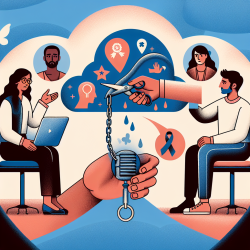Introduction
In the complex landscape of healthcare in low- and middle-income countries (LMICs), abortion-seeking women face numerous challenges, including restricted access to services and pervasive stigma. A recent systematic review titled "Disclosure to social network members among abortion-seeking women in low- and middle-income countries with restrictive access: a systematic review" offers critical insights into how these women navigate their social networks to find the care they need. This blog will discuss how practitioners can leverage these findings to improve healthcare outcomes for women in similar settings.
Key Findings from the Systematic Review
The review identified varying levels of disclosure to social network members based on the availability of anonymous access to abortion services and the degree of stigma. It categorized settings into three main types:
- Type 1: Anonymous access possible, hyper stigma.
- Type 2: Anonymous access possible, high stigma.
- Type 3: Non-anonymous access, high stigma.
The findings suggest that the likelihood of women confiding in their social networks increases with the difficulty of accessing anonymous services and the level of stigma.
Implications for Practitioners
Practitioners working in restrictive LMIC settings can utilize these insights to design interventions that improve access to safe abortion services. Here are some actionable steps:
- Community-Based Interventions: Develop community-based interventions that educate women about safe abortion practices. Utilize trusted community members to disseminate information discreetly.
- Peer Support Networks: Encourage the formation of peer support networks where women can share information and resources about safe abortion methods.
- Training and Education: Train local healthcare providers to be non-judgmental and supportive, ensuring that women feel safe disclosing their needs.
- Use of Technology: Leverage technology, such as mobile apps and helplines, to provide confidential information and support to women seeking abortions.
Encouraging Further Research
While the systematic review provides valuable insights, there is a need for further research to understand the nuances of social network dynamics in different settings. Practitioners can contribute to this body of knowledge by conducting localized studies and sharing their findings.
Conclusion
Understanding the role of social networks in the abortion-seeking process can significantly enhance the effectiveness of interventions aimed at improving access to safe abortion services in restrictive LMICs. Practitioners are encouraged to leverage these insights to create supportive environments that empower women to make informed decisions about their reproductive health.
To read the original research paper, please follow this link: Disclosure to social network members among abortion-seeking women in low- and middle-income countries with restrictive access: a systematic review.










